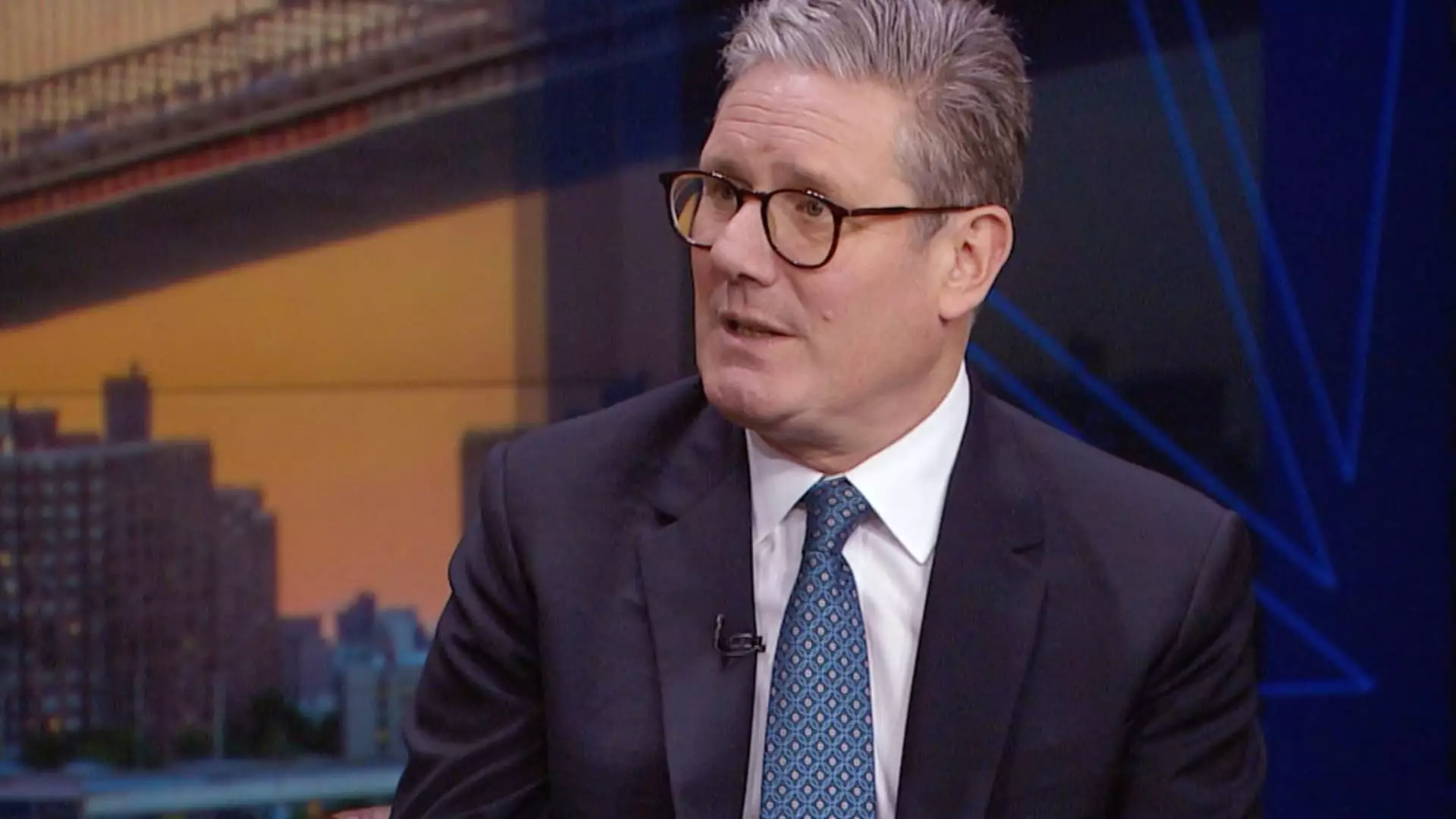The United Kingdom finds itself at a precipice, grappling with a lackluster economy that has lingered for years. In this challenging landscape, the Labour government, under the leadership of Prime Minister Keir Starmer, is setting its sights on attracting significant investments from major American corporations, particularly in the banking and technology sectors. Starmer’s administration expresses a strong desire to revitalize economic growth and employ strategies that appeal both to businesses and workers alike—traits that have historically characterized the Labour Party.
In an exclusive interview with CNBC’s Andrew Ross Sorkin, Starmer emphasized the government’s focus on wealth creation, marking a pivotal shift in the party’s approach. The Prime Minister boldly stated, “We are a Labour party that is proud to say we are pro business just as much as we are pro worker.” This proclamation reflects a strategic aim to foster a conducive environment for investment while also ensuring that workers are not left behind in the economic uplift.
Starmer’s leadership comes after a prolonged period of Conservative governance which lasted for 14 years. With the historic victory in July, Starmer not only became the first leader from the center-left Labour party to claim a national election in the U.K. since Tony Blair but has also signaled a strong commitment to economic stability right from the onset of his administration. This commitment was prominently displayed during Starmer’s recent trip to New York City, where he engaged with influential business leaders such as Bank of America’s Brian Moynihan and Microsoft’s Brad Smith to foster partnerships that would bolster the U.K. economy.
Particularly noteworthy was the commitment made by Blackstone to invest $13 billion towards developing a major data center in the northeast of England. This ambitious project promises to create approximately 4,000 jobs and serves as a critical step toward ensuring that the U.K. remains competitive in the rapidly growing field of artificial intelligence. Starmer termed this development a “big signal of confidence,” emphasizing the government’s intent to stimulate economic activity beyond London, thereby encouraging regional growth that has previously been neglected.
The Labour government’s designated areas for investment include renewables, artificial intelligence, and life sciences—industries that represent not just the future of job creation but also alignment with global sustainability commitments. By actively courting investments in these sectors, the government aims to establish the U.K. as a leader not only in the European market but on the global stage as well.
However, amidst these ambitious plans lies a pressing challenge. The U.K. economy is currently dealing with a reported financing shortfall of £22 billion ($29 billion), an issue highlighted in an internal audit conducted by the Labour government shortly after taking office. The criticism from former Finance Minister Jeremy Hunt of the Conservative Party reveals the contentious atmosphere surrounding Labour’s fiscal policies. The assertion of financial instability could potentially undermine the government’s credibility as it pursues aggressive investment strategies.
Moreover, Starmer’s government is actively preparing for its upcoming budget announcement in October, an endeavor that is laden with high expectations and potential setbacks. The Prime Minister has faced criticism for his frank assessments of the U.K.’s economic woes, suggesting that his approach may be perceived as overly pessimistic. Additional pressure has arisen over plans to eliminate the country’s non-dom tax regime, further complicating the political landscape.
The Labour Party’s recent decision to reject Starmer’s proposal to alter winter fuel payments for pensioners underscores the intricate balancing act the government must perform. With the public’s desire for stability and support juxtaposed against the necessity for painful fiscal decisions, Starmer’s commitment to stabilize the economy is put to the test.
As the U.K. enters this new era of economic strategy under Labour, the outcomes of these investments in technology and sustainability, combined with thoughtful fiscal management, will be crucial in shaping the nation’s economic future. The stakes are high, but the potential rewards present a promising opportunity for revitalization in a stagnant economy.


Leave a Reply